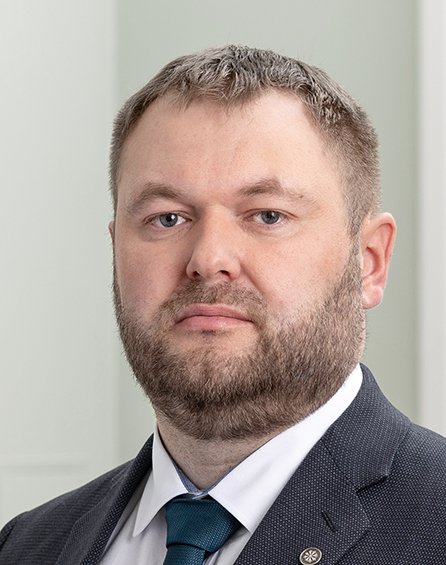
AI Profiileerimine: Rene Kokk
Päevakorrapunkte: 171
3110/3110 profiling (100.0%)
Sõnavõtte kokku: 388
Analüüsi periood: 2024-01-08 - 2025-09-24
Poliitiline positsioon
Poliitiku positsioon on kogu vaadeldud perioodi (2024–2025) vältel olnud ühtlaselt ja tugevalt opositsiooniline, keskendudes valitsuse fiskaalsele ebakompetentsusele ja pidevatele maksutõusudele, eriti automaksu ja aktsiiside osas. Kõige silmatorkavamad teemad on olnud maksupoliitika (nõue maksulangetusteks), perede ja maapiirkondade kaitsmine sotsiaalsete kärbete eest ning tugev rahvuslik fookus riigikaitse ja julgeoleku küsimustes (sh Vene kodanike valimisõiguse ja kinnisvara omandamise piiramine). Poliitiline raamistik on valdavalt väärtus- ja tulemuspõhine, nõudes valitsuselt vastutust, läbipaistvust ning rõhutades konservatiivseid väärtusi, kritiseerides samal ajal järjepidevalt valitsuse lühinägelikkust ja riigi halba juhtimist.
Teemade ekspertiis
Kõneleja demonstreerib sügavat ja detailset asjatundlikkust kolmes põhi valdkonnas: fiskaal- ja maksupoliitika (eelarvevead, aktsiiside ja automaksu tehnilised nüansid), õigusloome protseduurid ning taristu- ja energiapoliitika. Tema kompetentsi iseloomustab järjepidev tugi konkreetsetele majandusandmetele, statistilistele näitajatele (nt tarbijahinnaindeks, töötus) ja ametlikele aruannetele (Riigikontroll, Statistikaamet), mis annab argumentidele kaaluka tehnilise aluse. Eriti silmapaistev on oskus analüüsida seaduste rakenduslikke probleeme ja tehnilisi detaile (nt Rail Balticu maaomandamine, autorongide kaalupiirangud, IT-süsteemide puudujäägid), näidates fookust mitte ainult poliitika kujundamisele, vaid ka selle praktilisele ja finantsilisele teostusele. Korduvad teemad hõlmavad ka riigikaitse logistilisi ja rahastuslikke aspekte ning keskkonna- ja põllumajanduspoliitika spetsiifilisi probleeme.
Retoorriline stiil
Poliitiku retooriline stiil on läbivalt intensiivselt kriitiline, võitluslik ja konfronteeriv, väljendades sageli nördimust ja umbusku valitsuse tegevuse suhtes. Stiil tasakaalustab detailsed loogilised apellid (nõudes konkreetseid fakte, statistikat ja menetlusnormide järgimist) tugevate emotsionaalsete apellidega, rõhutades ebaõiglust perede, maaelanike ja teiste raskustes olevate rühmade suhtes. Kasutatakse teravat, otsest ja sageli sarkastilist keelt, iseloomustades vastaseid pejoratiivsete väljenditega ("jabur," "kobarkäkk," "lendav tsirkus") ning viidates valitsuse arrogantsusele ja "talupojamõistuse" puudumisele. Korduv retooriline võte on parlamendi ülimuslikkuse rõhutamine ja konkreetsete, praktiliste vastuste nõudmine, süüdistades oponente pidevalt sisulise vastuse andmisest kõrvale hoidmises.
Tegevusmustrid
Kõneleja on kogu vaadeldud perioodi vältel hoidnud erakordselt kõrget ja järjepidevat aktiivsust, osaledes Riigikogu istungitel ja infotundides peaaegu igal istungipäeval. Tema tegevusmuster on selgelt parlamendikeskne, keskendudes saalitööle, kus ta maksimeerib oma osalust, taotledes korduvalt lisaaega seisukohtade põhjalikuks selgitamiseks ja esitades detailseid järelküsimusi. Poliitik kasutab aktiivselt opositsioonitaktikaid ja protseduurilisi tööriistu, esitades arupärimisi, tutvustades vastueelnõusid ning tegeledes valitsuse tegevuse detailse järelevalve ja kriitikaga.
Opositsiooni hoiak
Opositsiooni vastasseis on kogu perioodi vältel intensiivne ja kompromissitu, suunatud peamiselt Vabariigi Valitsusele ja koalitsioonile (eriti Reformierakonnale ja sotsidele), samuti konkreetsetele ministritele (peaminister, rahandusminister Võrklaev). Kriitika on pidevalt kolmetahuline: sisuline (maksutõusud, eelarvekärped, automaks, välistööjõud), menetluslik (läbipaistmatus, küsimustele vastamata jätmine, "teerullipoliitika" ja normide rikkumine) ning eetiline (arrogantsus, ebakompetentsus, korruptsioonikahtlused ja poliitiliste vastaste karistamise süüdistused). Opositsioon nõuab järjepidevalt vastutust ja kasutab valitsuse tegevuse iseloomustamiseks teravaid metafoore ("lendav tsirkus", "maksufestival", "tunnelnägemine").
Koostööstiil
Poliitiku koostööstiil on valdavalt opositsiooniline ja keskendub tihedale fraktsioonideülesele toetusele EKRE kolleegide seas, toetades järjepidevalt nende algatusi ja jagades sarnaseid seisukohti. Samal ajal otsitakse laiapõhjalist erakondadeülest toetust teistelt opositsiooniparteidelt (nt Sotsiaaldemokraadid ja Isamaa) konkreetsete valitsuse vastaste eelnõude läbisurumiseks, apelleerides sageli nende ajaloolistele seisukohtadele. Suhtumine valitsuskoalitsiooni on valdavalt konfronteeriv ja kompromissitu, nõudes valitsuse tegevuse muutmist ja eelnõude tagasivõtmist, kuigi aeg-ajalt väljendatakse pragmaatilist valmisolekut menetluslikeks aruteludeks ja muudatusettepanekuteks, lootuses, et koalitsioon "võtab mõistuse pähe". Koostööd rõhutatakse ka regionaalsete osapoolte ja spetsialistidega, kritiseerides samal ajal ministrite suutmatust sisulist dialoogi pidada.
Regionaalne fookus
Poliitiku regionaalne fookus on läbivalt ja tugevalt suunatud maapiirkondadele ja hajaasustusele, rõhutades teravat erinevust linna ja maa elukeskkonna ning teenuste kättesaadavuse vahel. Keskne korduv teema on automaksu negatiivne mõju maainimestele, kelle jaoks auto on hädavajalik transpordivahend puuduliku ühistranspordi tõttu. Lisaks kaitstakse järjepidevalt kohalike omavalitsuste (KOV) autonoomiat ja rahastamist, kritiseerides riigi poolt peale pandud rahastamata kohustusi (nt sotsiaalhoolekanne, koolide sulgemine Vana-Vigalas). Tähelepanu pööratakse ka spetsiifilistele taristuprojektidele (Rail Baltic, teedevõrk) ning kodumaise toidutootmise ja põllumeeste huvide kaitsmisele, rõhutades majanduse vereringe tagamise vajadust igas Eesti punktis.
Majandusvaated
Poliitiku majandusvaateid iseloomustab tugev maksulangetusi pooldav ja uusi makse (eriti automaksu) vastustav hoiak, rõhutades vajadust leevendada inflatsiooni ja parandada kodanike toimetulekut. Ta nõuab ranget fiskaalset distsipliini, riigieelarve kulude auditeerimist ning pakub maksutõusude alternatiivina välja erakorralise pangakasumi maksustamise. Vaated on suunatud kodumaise ettevõtluse ja tootmise kaitsmisele, logistikaefektiivsuse tõstmisele ning innovatsiooni eelistamisele odava välistööjõu sissetoomise asemel. Poliitik kritiseerib järjepidevalt valitsuse rahanduspoliitikat, mis tema hinnangul soosib jõukamaid (nt elektriautode toetused) ja kahjustab madalama sissetulekuga elanikke ning maapiirkondi.
Sotsiaalsed küsimused
Poliitiku sotsiaalpoliitiline profiil on vankumatult konservatiivne ja demograafiale orienteeritud, seades esikohale traditsioonilise perekonnamudeli ja vastustades järjepidevalt peretoetuste kärpeid, mida nähakse riigi poolt perede alandamisena. Sotsiaalse õigluse küsimustes kaitseb ta eakaid, puuetega inimesi ja suurperesid regresseeruvate maksude (nt automaks) eest, eelistades universaalset maksulangetust siirdetoetustele, mida peetakse alandavaks. Julgeoleku ja korra tagamise nimel nõuab ta ranget sisserände kontrolli, vastustab odavtööjõu sissetoomist ja välisvangide toomist ning seab kahtluse alla kodakondsuseta isikute valimisõiguse, sidudes lojaalsuse ja turvalisuse küsimused otseselt riigi tulevikuga.
Seadusandlik fookus
Poliitiku seadusandlik tegevus on järjepidevalt opositsiooniline, keskendudes valitsuse maksupoliitika (eriti automaksu ja aktsiiside tõstmise) vastustamisele ning algatades korduvalt eelnõusid maksukoormuse (tulumaks, kütuseaktsiis, toiduainete käibemaks) vähendamiseks. Olulised korduvad prioriteedid on riiklik julgeolek ja kaitsevõime (sh Vene kodanike kinnisvara omandamise piiramine ja jalaväemiinide konventsioonist väljumine) ning valimissüsteemi reformimine (e-valimiste kaotamine ja kodakondsuseta isikute valimisõiguse vastustamine). Ta tegutseb aktiivse algataja ja toetajana eelnõudele, mis suurendavad riigiettevõtete läbipaistvust ja nõuavad valitsuse tegevuse kontrolli (nt Rail Balticu uurimiskomisjon), kritiseerides samal ajal teravalt valitsuse praktikat opositsiooni eelnõude tagasilükkamisel.